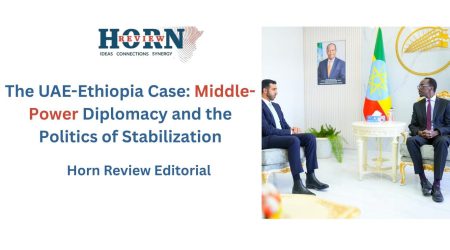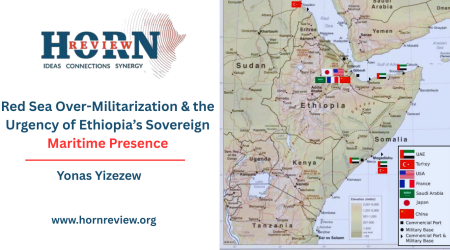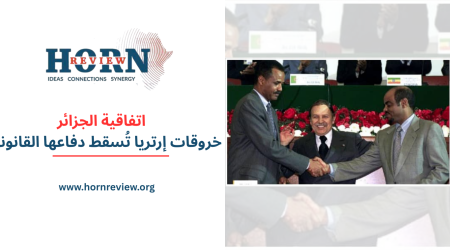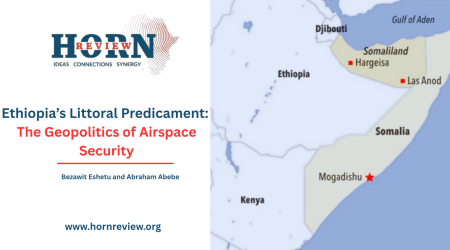
11
Apr
On Ethiopia’s National Security Council Statement: Continuity, Shifts, and Future Implications
The National Security Council of Ethiopia released its statement following a meeting convened to assess internal security, economic conditions, and regional developments. The statement maintains several elements of continuity with the government’s established security framework since Prime Minister Abiy Ahmed took office. Ethiopia’s territorial integrity and sovereignty are emphasized as paramount concerns consistent with longstanding governmental positions. The statement reiterates the administration’s commitment to pursuing diplomatic solutions to regional challenges, while maintaining internal security operations. This reflects the dual-track approach that has characterized the government’s security strategy since 2019.
The document continues the narrative framing of portraying government actions as necessary for ensuring national stability and economic development. It underlined references to protecting the nation’s development trajectory against forces seeking to undermine it. This approach echoes previous statements from the Council that positioned opposition forces as obstacles to national progress. The continued emphasis on diplomatic initiatives regarding sea access also aligns with the government’s recent foreign policy focus. It aims to maintain consistency in prioritizing this economic and geopolitical objective, in the face of internal security challenges.
Despite these continuities, the statement contains subtle but significant shifts that suggest evolving governmental priorities. The document adopts a more conciliatory tone toward internal conflicts compared to statements from 2020-2022. The current tone suggests an increased recognition of the need for political rather than purely military solutions to domestic challenges. This represents a moderation of the government’s previously more aggressive stance toward regional tensions, particularly regarding Tigray.
The statement’s increased emphasis on regional cooperation and integration signals a strategic pivot toward positioning Ethiopia as a stabilizing force in the Horn of Africa. This marks a shift away from focusing primarily on internal security threats. According to the statement, this shift aligns with the government’s growing diplomatic initiatives and suggests an attempt to elevate Ethiopia’s regional status despite ongoing internal challenges. The framing of security threats has shifted away from directly blaming specific ethnic or political groups. Instead, there is now greater emphasis on external influences and overarching socioeconomic issues as key factors affecting national security. The statement’s emphasis on constitutional order and rule of law carries implicit messaging regarding the government’s expectations for regional administrations. Which includes Tigray region’s new leadership under Gen. Tadesse Werede.
While predicting pragmatically, certain types of scenarios could emerge in relation to the Council’s statement. Some sort of shifts might occur while maintaining previous approaches. Primarily, economic considerations will increasingly drive security policy, with the government focusing on relatively stable areas that are critical to economic recovery – which is to be performed while accepting continued low-level instability in peripheral regions. This pragmatic approach reflects resource constraints and recognition that complete pacification of all contested areas remains beyond current capabilities. On the other hand, the diplomatic push for sea access will intensify, with security considerations increasingly framed around this objective. The government will likely leverage improved relations with international partners to advance this agenda while seeking to minimize international scrutiny of domestic security operations.
On the other diverging trajectory, the government may pursue meaningful dialogue with the new Tigray’s leadership. This could involve potentially offering greater autonomy and resource allocation in exchange for definitive acceptance of federal authority. This approach would represent a strategic calculation that accommodation offers better prospects for stability than continued confrontation.
Overall, the National Security Council statement reflects strategic clarity, maintaining core positions while creating space for policy adjustments as circumstances require. This approach allows the government to project continuity while adapting to evolving challenges, including the new election in Tigray. The statement suggests that the government’s fundamental security framework remains intact.
However, its implementation is becoming more flexible and pragmatic in response to the limitations of previous approaches. The coming months will likely see continued tension between centralization and accommodation in the government’s security approach. It is with pragmatic considerations increasingly influencing policy choices. Economic imperatives and diplomatic priorities will shape security decisions more directly than ideological considerations.










